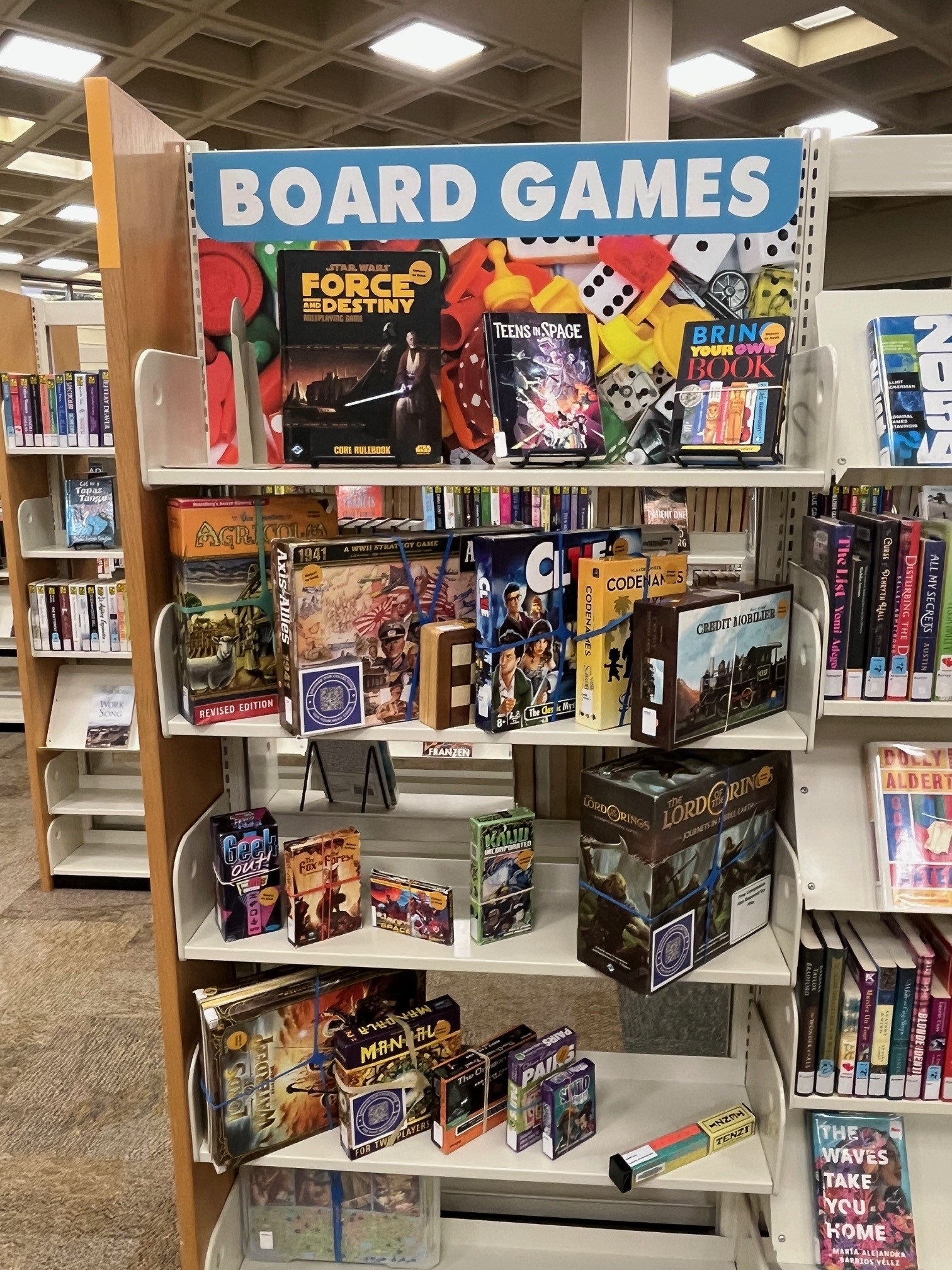Game Changer: Try It Before You Buy It
Published on November 05, 2024

By Alice S.
Let me take you back to ’90s on a Saturday morning. I am at my grandma’s house. Fresh cookies are baking in the oven and Grandma had 10-12 minutes in between batches. She grabs a deck of cards from the drawer and deals seven cards each. Play begins.
 Whether it was a simple card game like Crazy 8s or Kings in the Corner with Grandma, or if it was a longer board game like Rummikub or Sorry! with my parents and sister, the memories of cards and games are numerous. It was one of Mom’s go-to suggestions when my sister and I complained, "I’m bored!" The closet at home was stacked tall with games and puzzles to keep us busy.
Whether it was a simple card game like Crazy 8s or Kings in the Corner with Grandma, or if it was a longer board game like Rummikub or Sorry! with my parents and sister, the memories of cards and games are numerous. It was one of Mom’s go-to suggestions when my sister and I complained, "I’m bored!" The closet at home was stacked tall with games and puzzles to keep us busy.
Card games and board games are fun to play, but also are good for you. Games help develop brain function including memory, decision-making, problem-solving, and logic. In fact, in older adults, playing games has been shown to lower the risk of developing Alzheimer’s*. In younger children, games can help with dexterity, pattern recognition, and teamwork. Games help children (and, honestly, adults) develop skills that help them regulate emotions and have flexibility during changing circumstances in a game.
When I was a kid, I'd frequently have a game on my birthday or holiday wishlists. But how would I know if I liked a game enough to spend my hard-earned allowance to buy it!? What if I wanted to play them ALL!? Well, I just had to pick one as a kid, but now I can borrow a different new-to-me game from the library whenever I want. I have chosen board games, like Really Loud Librarians, to play with friends on an adult night-in. More often, I bring home games for the littles in my life. Whether it’s Guess Who?: Disney Princess edition or something completely different for all of us like Robot Face Race, bringing home a game from the library always guarantees that we have something to do.


The game collection at the library is something you can browse, but just remember, if you don’t see one at your branch, place a hold. You can narrow the search by collection (adult or children’s) or by age group. Siouxland Libraries probably has waaaaay more games than you realize: start browsing.
*Wilson, R. S., Bennett, D. A., Bienias, J. L., Aggarwal, N. T., Mendes de Leon, C. F., Morris, M. C., Schneider, J. A., & Evans, D. A. (2002). Cognitive activity and incident AD in a population-based sample of older persons. Neurology, 59(12), 1910–1914.
Websites consulted: Bead Game, National Library of Medicine, Carnegie Mellon University, Psychology Today, MPG, Bandpass, Bucks County Free Library